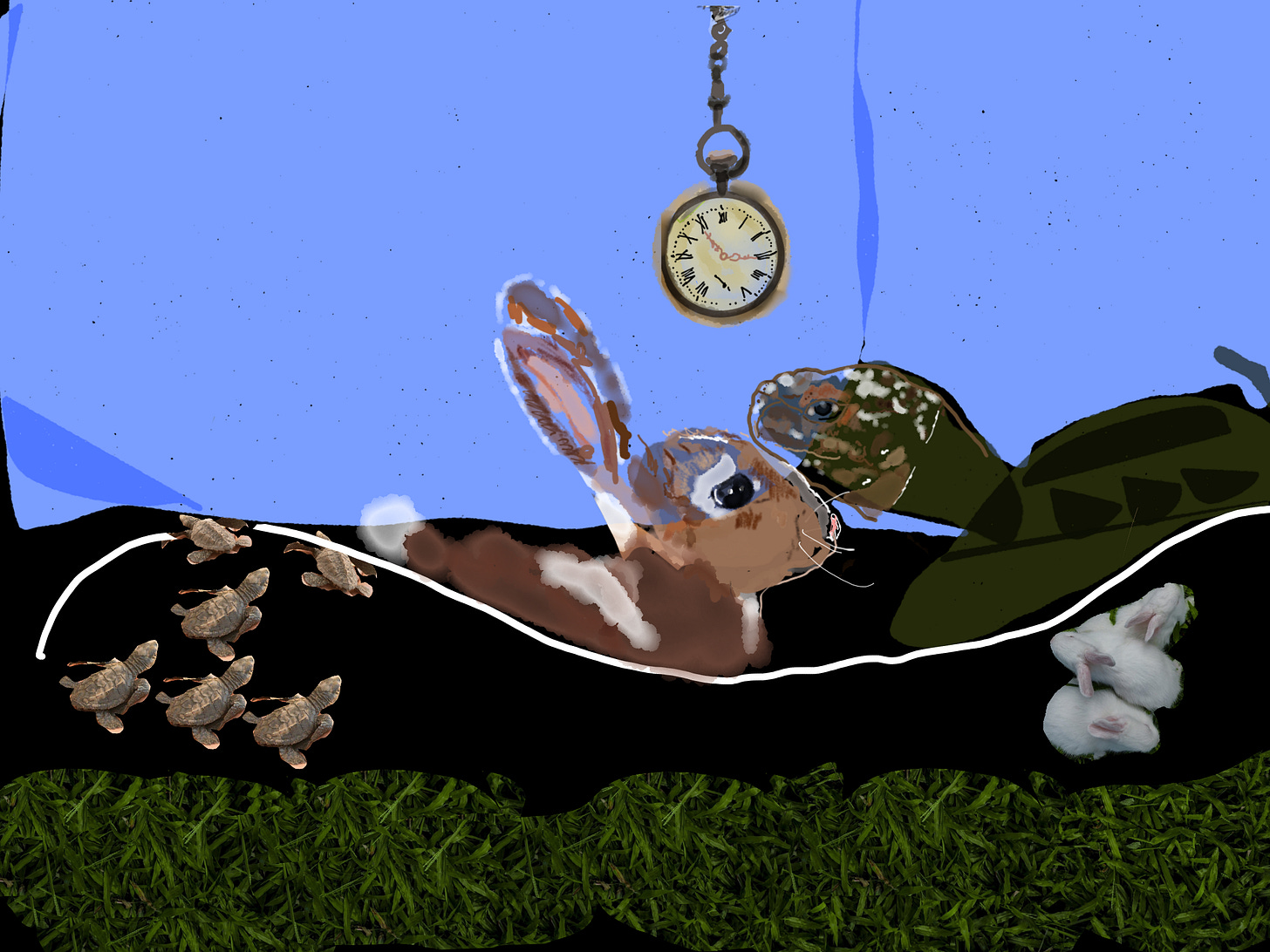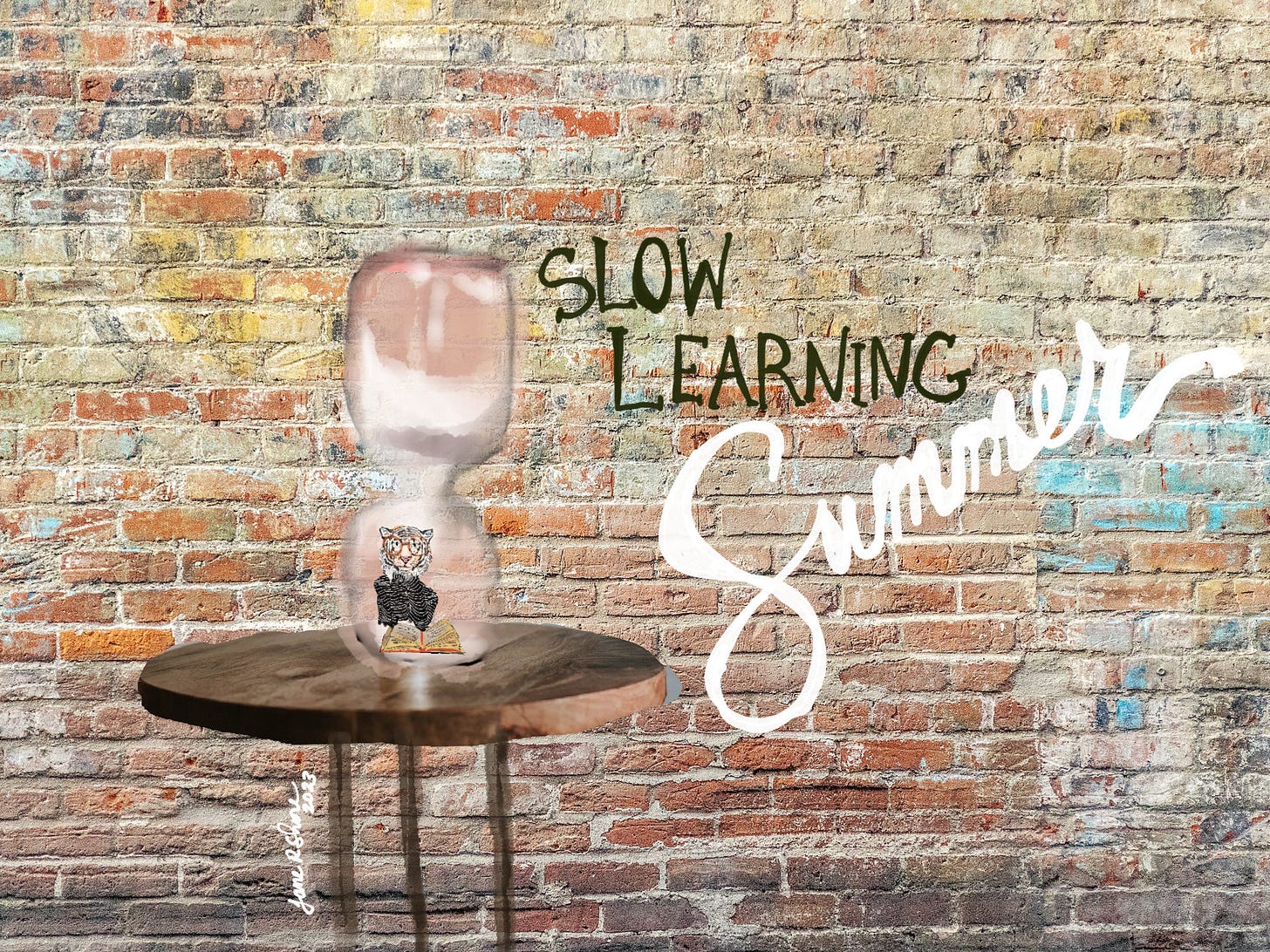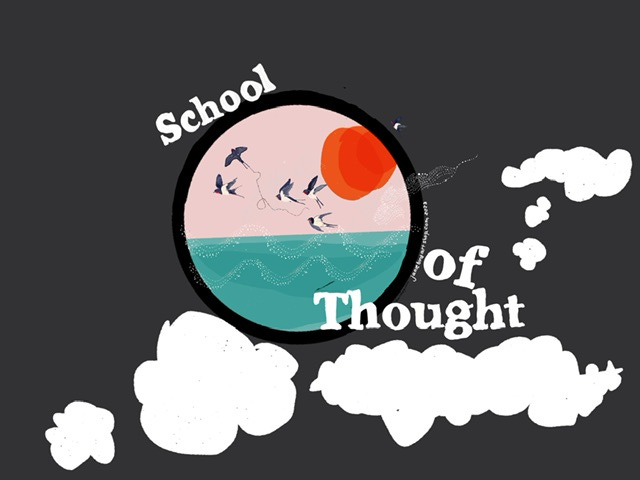Slow down! You learn too fast.
A call for a slow learning summer.
If you like what you read, please hit the ♥️ button above. I’d love to hear from you!
“I am a fast learner.” Everyone I have ever interviewed.
If you ask around, most people will describe themselves as “fast learners.”
I am suspicious of this when I look at data, like the often cited research that 93% of Americans think they are better drivers than average. 1 (I am NOT one of them.)
It is not that slower learners do not know they are slow. They very likely do.2 More likely this stems from mainstream U.S. culture’s need for speed. There is a desire for efficiency, an admiration for thinking fast, positivity around quick service, speedy answers, quick learning (not to mention fast food, fast fashion, fast talking.)
We say we are fast learners because we expect that’s what others want to hear.
Culturally, we’ve stigmatized a slow approach to learning.
I did a quick search for “slow learner,” or “slow learning” and top results provide insights on how to “solve” this issue, indicating that it is a problem.
We have been acculturated to believe that the speed at which we learn is a one-dimensional metric — and the faster the better.
I call 🍎applesauce on that one.3
Put simply: faster learning does not mean smarter learning.
This post is a call for a SLOW LEARNING SUMMER.
#slowlearningsummer #schoolofthought
The Big Idea
A previous post suggested a Slow Schools Movement, and I stick by that.
That said, this slower learning is not just for schools, it’s for learning and life.4
It’s not about being fast or being slow…its deciding what works and what matters.
My brain craves time and space to assimilate new ideas. I need quiet to innovate around learned concepts, make them mine - connect dots between old and new, sometimes create visuals to translate for myself, or bring in others. This is time consuming - different, sometimes slower, but not lesser.
If this is true (see evidence below), then:
Why do we have a fixed pace to move through school?
Why do we time tests of aptitude, ability and achievement?
Why do we use “fast learner” (=smart) and “slow learner” (=not smart)?
More self-paced learning should be a goal in schools and life.5
Here are a few key pieces of research that support slowing down in learning:
Basics: Learning slowly helps develop the basics, vital for future skills.6
Spacing effect: Spreading out learning aids long-term memory. 7
Processing: Processing time improves the quality of thinking and learning.8
Teaching: Slow learning has better carryover for teaching.9
Retrieval: Slow learning fits research on how we create long term memories.10
Making Big Ideas Usable
If slow schools emphasize:
Self directed learning (New 3 Rs, Curriculum Should be Inverted)
Learning fueled by strong relationships (PeopleBL Experiences)
Opening ones mind and connections (Think Like an Artist)
Writing/Demonstrations of learning (Gradeless or Grading Less?)
Then SLOW learning this summer can be fueled by the same pillars. Below are tips I’ve collected to support my slow learning plans.
Make a public declaration. Tweet it, post on LinkedIn, tell friends at a dinner.
Set specific dates, times and places for learning.11
Learn with people and hold myself accountable. #slowlearningsummer
Open the process and learn in public.12
Write (or share) about the learning. (Become a co-creator or cross-post here.)
This summer, my slow learning will be art related to expand the shop here. Hoping this helps learning marinate, compound, maybe turn into something new.
I love this advice from Nicole Vanderhoven of Fork My Brain.
Be a guide, not a guru. (“leave a trail of breadcrumbs for others to follow.”)`
Follow for more SOT Visuals in Your Feeds
🐦 Twitter : Where you find the latest visuals.
📷 Instagram : All visuals in one place.
🔗 LinkedIn: Visuals + Deep-Dives.
Available soon for subscribers: a Mini Ebook, The Visual Factor, which will walk through the WHY of visualizing with workshops to follow on HOW in the fall.
This does not mean that learning quickly has no use. More on this in a future post.
Standardized education assumes that slow students are inherently less capable (Not true). More here.
We all have to eat the broccoli.
Spending 10 hours learning a set of facts in one day will have worse performance than spending those ten hours over ten days. More on the spacing effect here.
The best teachers are frequently not the most gifted athletes or the fastest learners, but those who knows the struggle of learning, the challenges, and how to overcome them. If you learned something easily, it can be harder to teach it.
The optimum concentration level of the human brain is about 25 minutes.
When you slow down, your brain makes a better connection for faster retrieval.
Taking your time allows your brain to store learning in multiple places.
Learning slowly helps transfer knowledge from your working to your long-term memory.
Check out implementation intentions - choosing a time and date helps get things done.
Ideas: Write blogs, tutorials, and cheatsheets; speak at conferences; ask and answer things in public places; make YouTube videos; start a newsletter; draw cartoons; reach out to guides - thank them, ask questions; teach workshops; summarize what you've learned and share it.





We just had back to school night, and in each of his AP classes, the teachers said we do not have time for everything. We have to cram all this information in by May. There isn’t enough TIME for them to do everything they need to do in class. This to me seems insane. But that’s how our system is. They need to “learn” all this stuff to perform at an exam. But how, with this firehouse approach, can they really learn it?